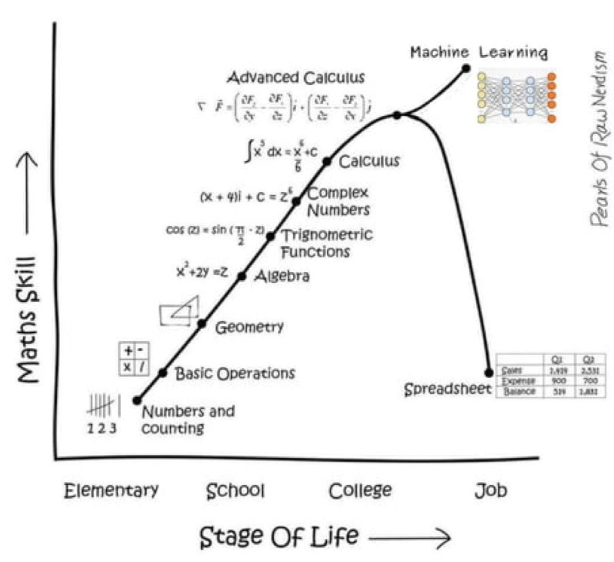
Bold prediction for 2023: The Birth Of The Business Scientist.
Here's what is about to happen. 🧵
#datascience #python #rstats #stats
Here's what is about to happen. 🧵
#datascience #python #rstats #stats

According to Glassdoor research, we already have:
1. Data Analyst, $71,298/yr
2. Business Analyst, $83,924/yr
3. Data Scientist, $124,680/yr
But noticeably missing is the "Business Scientist".
1. Data Analyst, $71,298/yr
2. Business Analyst, $83,924/yr
3. Data Scientist, $124,680/yr
But noticeably missing is the "Business Scientist".
So what is a "Business Scientist"?
And why are we about to see the birth of this new role?
And why are we about to see the birth of this new role?
To understand, we first need to know why the "business analyst" role was created.
Business analysts and data analysts both work with data.
The difference is what they do with it.
Business analysts and data analysts both work with data.
The difference is what they do with it.
Business analysts use the data to make strategic decisions.
Data Analysts focus more on identifying useful information from business data.
Do you see the difference?
Data Analysts focus more on identifying useful information from business data.
Do you see the difference?
The BIG BILLION DOLLAR PROBLEM in data roles is that they are focused on "identifying useful information".
And the reason why "Business" roles are paid on average 17% more, is because they are focused on "business strategy".
So, I see a change coming in 2023...
And the reason why "Business" roles are paid on average 17% more, is because they are focused on "business strategy".
So, I see a change coming in 2023...
The birth of the "Business Scientist"...
A data person that is solely focused on business strategy that uses cutting-edge tools and techniques to develop and implement new and improved business strategies.
A data person that is solely focused on business strategy that uses cutting-edge tools and techniques to develop and implement new and improved business strategies.
And if you'd like to prepare for this change so you can get the elusive $145,876/yr salary that's up for grabs...
... then I'd like to help.
... then I'd like to help.
Here's how...
Attend my new webinar, "How to get a data science job in 2023?"
I will discuss trends and what companies need from you to hire you.
Attend my new webinar, "How to get a data science job in 2023?"
I will discuss trends and what companies need from you to hire you.
You will leave with actionable insights to set you apart from your competition AND increase your value to your organization.
AND you'll have the step-by-step plan to become more qualified than traditional "Data Scientists" that get paid "124,680/yr
AND you'll have the step-by-step plan to become more qualified than traditional "Data Scientists" that get paid "124,680/yr
What's inside this webinar?
You will learn:
You will learn:
1. What mistake every aspiring data scientist is making
It's actually preventing you from becoming a data scientist.
It's actually preventing you from becoming a data scientist.
2. The backdoor way to getting a data science job
If you do this correctly, you'll increase your chances of getting a job by 4.3X.
If you do this correctly, you'll increase your chances of getting a job by 4.3X.
3. Get ideas for your future job portfolio
By adding the 3 overlooked skills to your tool chest
By adding the 3 overlooked skills to your tool chest
All data science job secrets will be revealed during the training.
I'll see you there!
Register Here: bit.ly/career-2023
I'll see you there!
Register Here: bit.ly/career-2023

• • •
Missing some Tweet in this thread? You can try to
force a refresh









